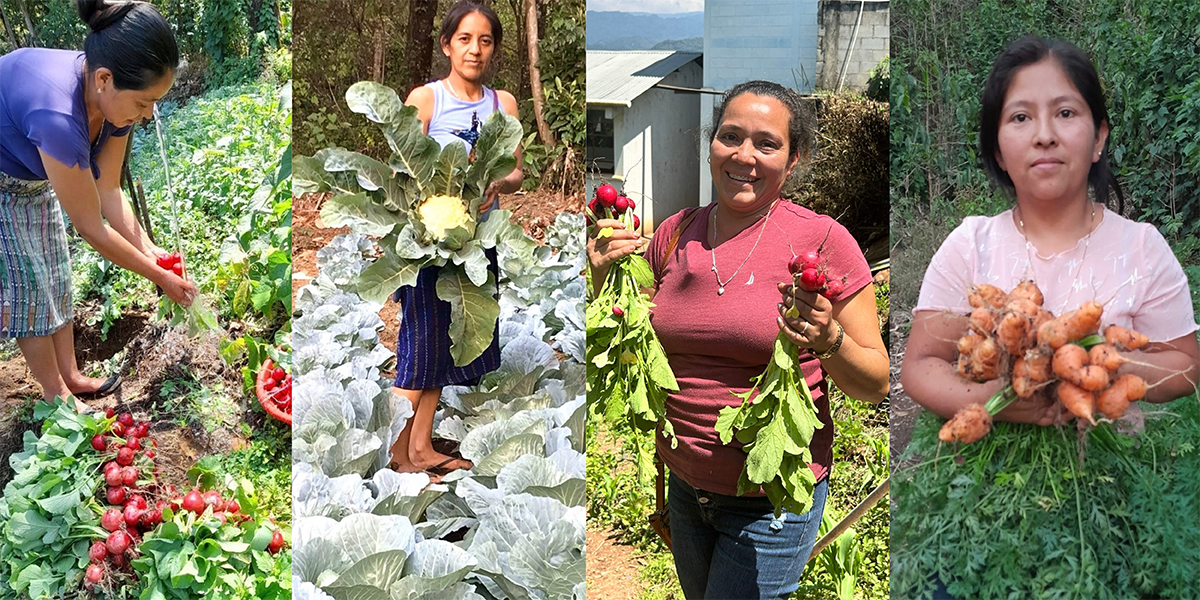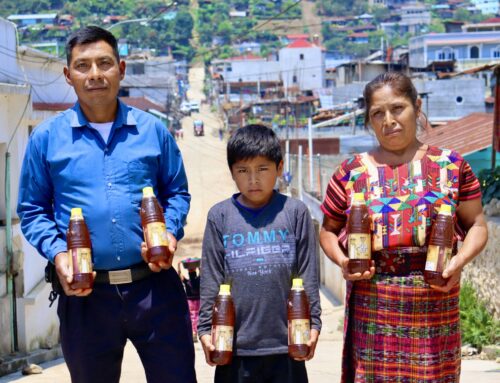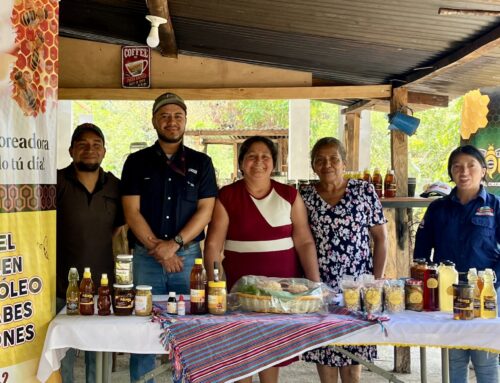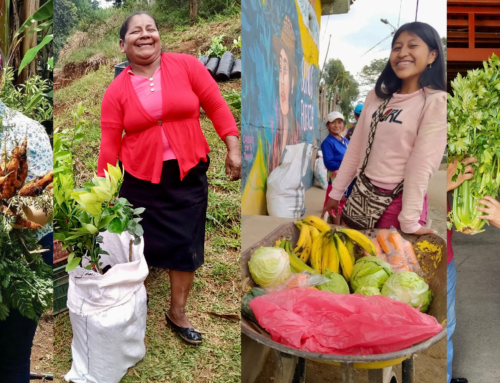by Laura Peterson, Food 4 Farmers Board Member
For years when I worked in the coffee industry, I had a small piece of paper pinned to the corkboard above my desk. On it were the names of women I had met on an origin trip I had taken to learn more about coffee and coffee farmers.
During my trip I focused on Concepcion Tunqui, a woman coffee farmer, interviewing her about her typical day. She told me she wakes at 3am to gather firewood to cook her breakfast, then joins the other co-op members on nearby hillsides to pick coffee. Around 11am she stops to cook a communal lunch, then returns to picking coffee until the sun sinks below the surrounding mountains. She was 57 years old, and she had done this all her life.
I remember scribbling frantically in my notebook as Concepcion’s story was translated from her native Quechua into Spanish, and from Spanish into English. Soon we attracted a crowd of women, listening and watching as I wrote. After the interview, I handed Concepcion my notebook and asked for the proper spelling of her name. In thin, hesitant letters, she put her name on the first line of a blank page.
Before she could hand the notebook back, another woman from the co-op took it and put her name on the next line. Then another added her name to the line below that. And another.
Marina Peralta. Matilde Quispe. Fortunata Zanebria. One by one, all 11 women recorded their names on the list, as if to document their own existence.
I kept that list of names pinned up as a daily reminder that coffee growers are not just a link in a supply chain; they are individuals. In this case, mothers and sisters, daughters and friends—each with her own story and her own critical role in the coffee industry.
Now I support Food 4 Farmers to make sure women like Concepcion, Marina, Matilda, Fortunata and others can continue to survive and even thrive in their lives as coffee farmers. Stunningly, most coffee farmers don’t have enough food to feed their families all year long. Food 4 Farmers helps coffee communities fight food insecurity by strengthening local food systems, promoting sustainable agriculture, diversifying incomes, and building local leadership—especially among women.
As we close out Women’s History Month, I hope you’ll join me in honoring the women who are cultivating great coffee – and a food secure future – by donating to Food 4 Farmers.




